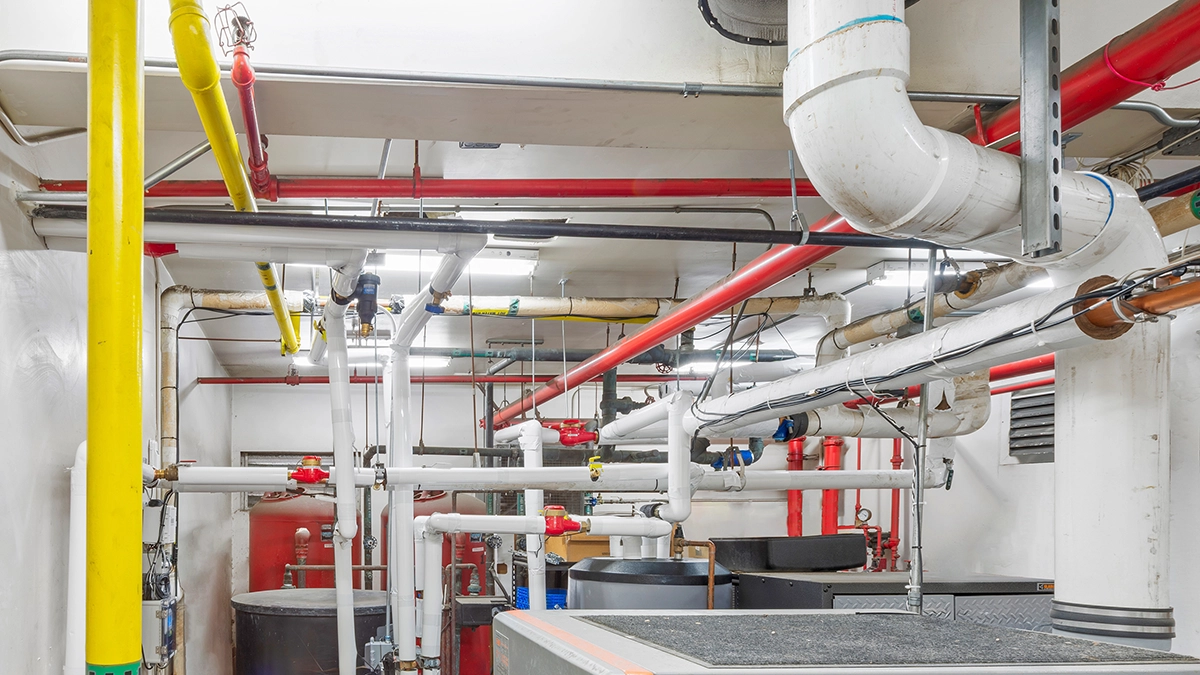Businesses seeking stability amid the unpredictability of the commercial water heating market are discovering a new solution that meets the daily requirements of their operations.
The diverse nature of the commercial market – from the different types of equipment and end-use applications to the wear-and-tear processes based on usage profiles – can create a complex and costly environment, especially for those who depend on hot water for business success.
Enter gas heat pump technology, which is fueling welcome consistency for mission-critical water heating applications and bringing added benefits opposite the growing challenges of electricity.
“Word is getting out about gas heat pumps,” says Bo DeAngelo, Manager, Technical Services for North America at Stone Mountain Technologies Inc. (SMTI). “Slowly but surely, people are hearing about the technology and what it can do, and they’re adopting that technology.”
Stone Mountain’s Anesi gas absorption heat pump is giving homeowners and HVAC contractors a new option to consider for residential space and water heating, but it’s also driving a cycle of change in the commercial water heating industry.
And change is needed in a market where business owners are facing rising energy costs.
“Reducing supply chain costs is challenging in business. Increasing efficiency of resources is easier to control,” says DeAngelo, who supports contractors in the design, adoption and integration of SMTI technologies.
The gas absorption heat pump, fueled by natural gas, propane or renewable fuel blends, leverages combustion heat to capture additional energy from the outdoor air. This type of system addresses efficiency at its core.

“We’re going to burn less fuel, which is good, which means the owner is going to experience a lower cost of operation, lower capital expenditure,” says DeAngelo, referring to a system that uses 30% to 50% less fuel than traditional options. “This is very good for all businesses.”
With lower fuel consumption, DeAngelo adds, the 80,000-Btu system can achieve efficiency marks approaching 120% to 130%, potentially even more, depending on the application, with the customer realizing potential fuel-cost savings of 40%. These conditions are feasible with the large, steady loads often seen in the commercial market.
“The opportunity to achieve extremely high efficiency is very real and very possible,” he says.
Cost benefits of the gas heat pump are realized elsewhere, too. Businesses choosing readily available natural gas or propane systems avoid not only the high capital expenditures of converting to electricity but also the demand-side charges often incurred during peak-period operation. For some businesses, DeAngelo notes, that can mean 80% to 90% of their energy consumption taking place during those peak hours when electric utilities may levy excess charges.
“I think conservation and the smart use of energy should be the goal,” says DeAngelo, also recognizing the positive environmental impacts associated with the gas heat pump’s lower fuel consumption and its avoidance of a potentially dirty energy source powering the electric grid.
The hot water needs of restaurants, hotels, dormitories and other group living facilities, as well as swimming pools are just some of the applications that can benefit from the Anesi gas water heating system.
And because SMTI simplifies the installation, from providing a full basis of design to monobloc construction that places all connections, combustion and refrigerant outdoors, contractors are already ahead in the process.
It all adds up to a solution on the verge of disrupting the market.
“You would be doing yourself a disservice by not considering it as an alternative to other options and giving it a very close look,” DeAngelo says. “You can’t ignore the potential savings in your operation and capital expense.”

